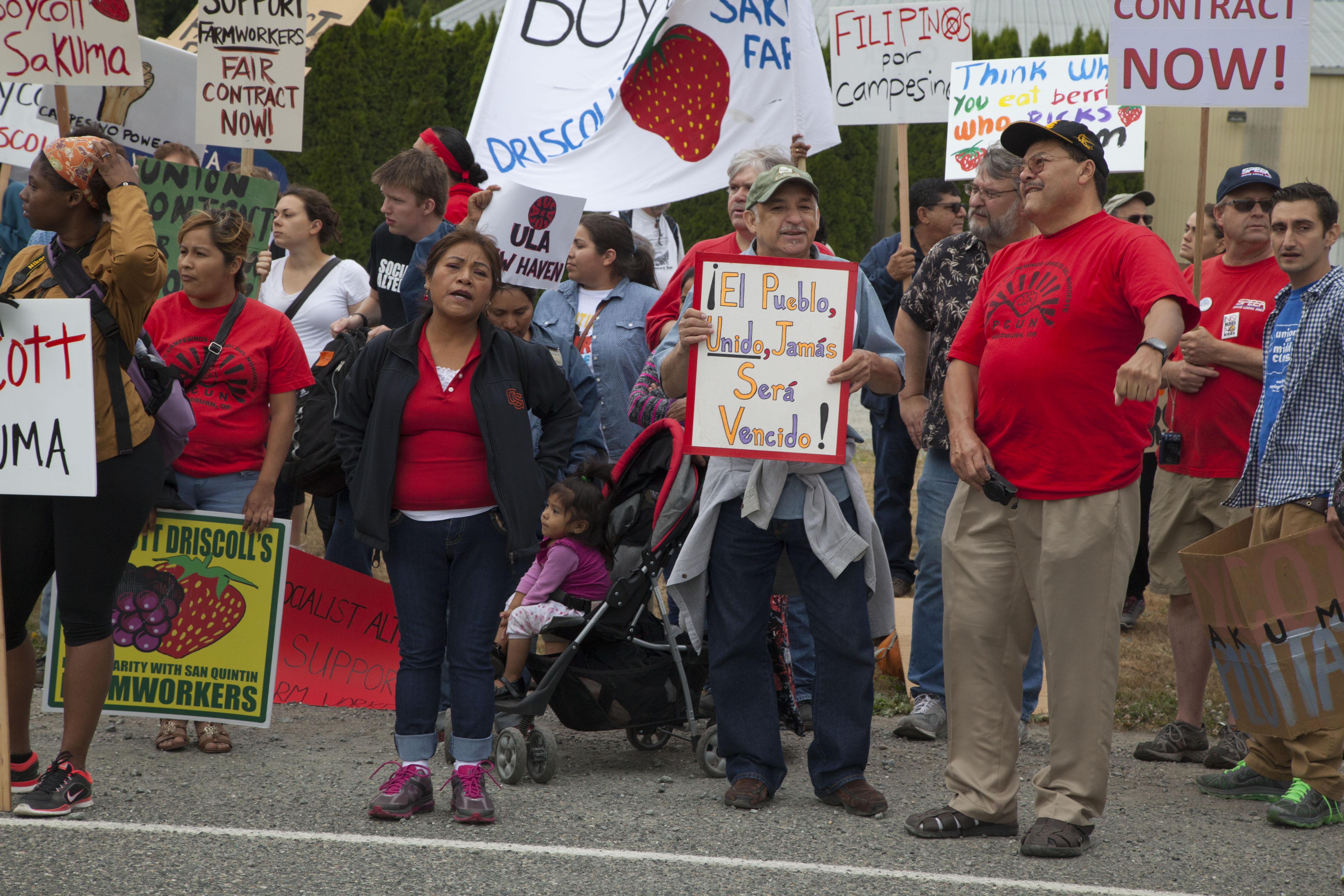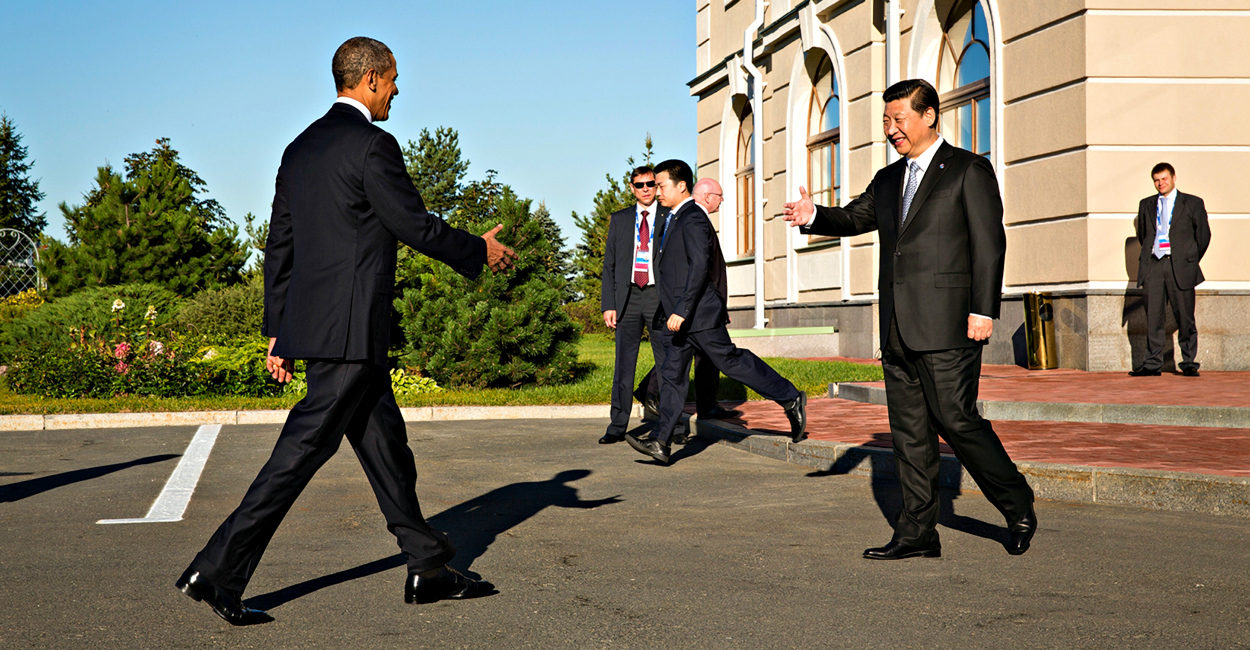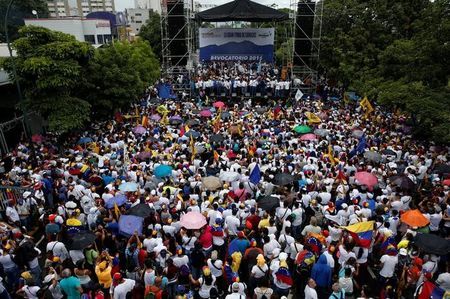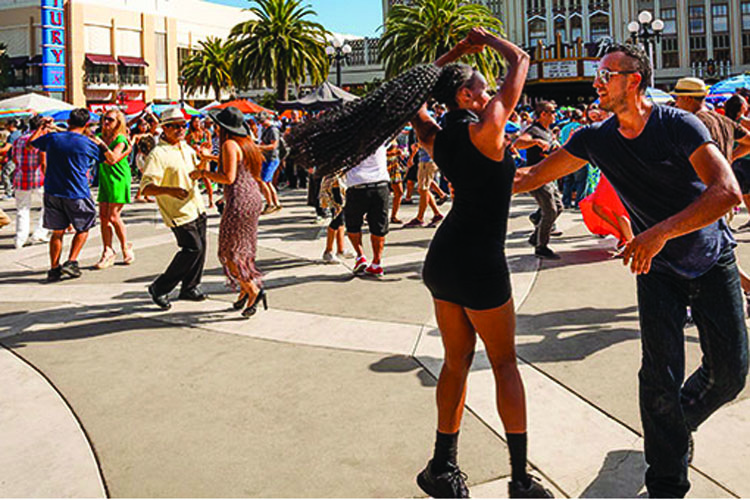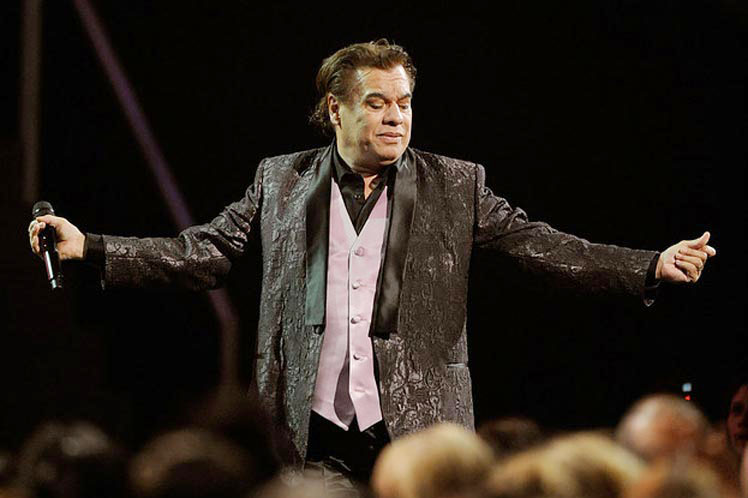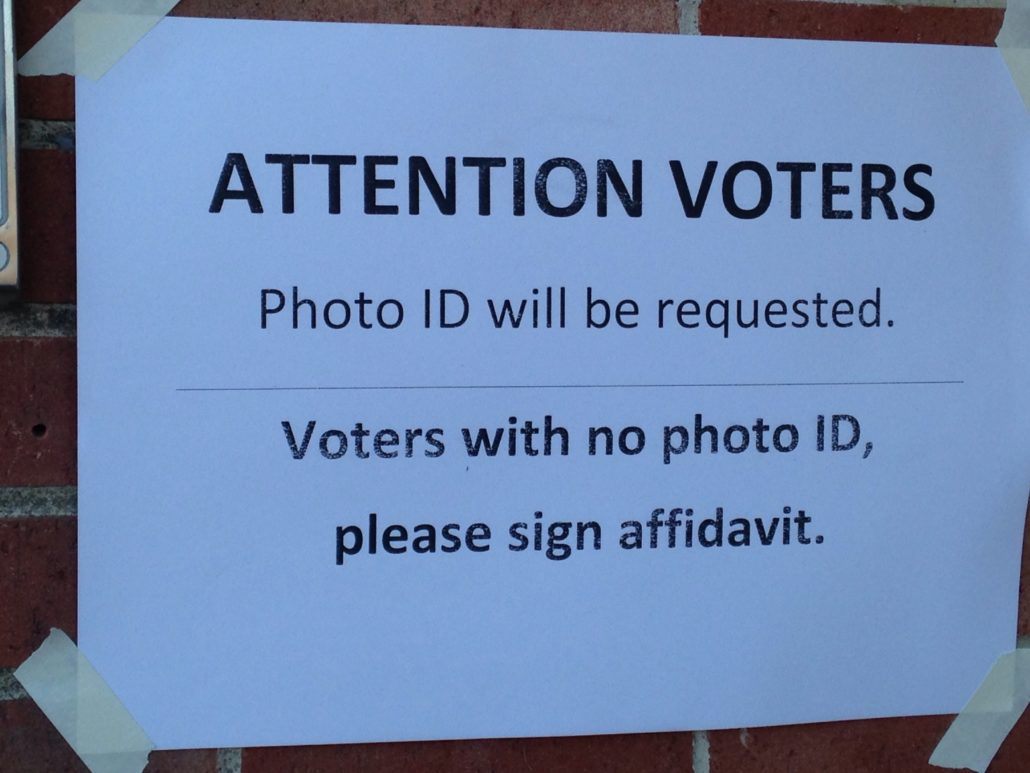The farmworker-led boycott of Driscoll’s berries
by Felimon Piñeda
Interviewed by David Bacon
Felimon Piñeda is vice president of Familias Unidas por la Justicia, the independent farm workers union in Washington State. He was one of the original strikers when the union was organized in 2013. The union, together with the union of striking farm workers in Baja California, Mexico, has organized a boycott of Driscoll’s Berries, the world’s largest berry company.
They demand that Driscoll’s take responsibility for the conditions and violations of labor rights by the growers whose berries they sell. Piñeda describes the life of a farm worker producing Driscoll’s berries, and his own history that brought him into the fields of Washington State. He told his story to David Bacon during an interview in Linden, Washington.
Our town in Oaxaca is Jicaral Coicoyan de las Flores. We speak Mixteco Bajo. I am 33 years old, but I left at a very young age. In 1996 I got to San Quintin [in Baja California] with my older brother. After four nights in Punta Colonet, we found a place to stay in a camp. There were a lot of cabins for people and we stayed there for six months. We planned to go back to Oaxaca afterwards, but when we’d been there for six months we had no money. We were all working — me, my sister, my older brother and his wife and two kids — but we’d all pick tomatoes and cucumbers just to have something to eat. There was no bathroom then. People would go to the bathroom out in the tomatoes and chiles. The children too.
Another man living there, who spoke another dialect of Mixteco, rented us a little house. It was one room, very small. We were there a year. We were getting home at five in the evening and the children were all eating their food cold because we couldn’t make the stove work. Then my brother said we should buy a plot between all of us, to give us a place to live. So we paid one payment, and then another. My brother is still living there, and his children are grown up now. His oldest son is 22 or 23. My niece now has kids.
In Punta Colonet life was very hard. Work was always badly paid. You had to work a lot for very little. In 1996 the wage was 45 pesos. In 2002 I worked three months there again, and in 2005 I worked almost a year. The bosses paid about 100 pesos. But the food was cheaper then. Maseca [corn flour] cost 55 [pesos]. We were not living well, but earning enough to afford it. A soda then cost five pesos. Now it costs 12 pesos.
I lived in Punta Colonet two years, and then, because of our great need, I had to begin coming to the US. I worked in the tomatoes in Florida, where it was very hot. It was very hard work, because they have a trailer for the tomatoes, and I’m short. You have to lift the bucket full of tomatoes to about nine feet. The person on the trailer grabs it and empties it, and then hands it back. I couldn’t do it, and I had to stand on something, and the bucket weighs more than 30 pounds. It was very hard, and I did that work for a year-and-a-half. In San Quintin I picked tomatoes too, but it wasn’t as hard.
Recently, we’ve seen the movement grow in San Quintin — the Alianza de Organizaciones Nacional Estatal y Municipal por la Justicia Social. They’re defending the people. To me, it’s very important that there’s someone willing to defend people. The political parties aren’t interested in what’s happening to us at work. I don’t know how the Alianza got started, but I hear they’re suffering a lot from threats by the companies, threats from the government. The rich and the bosses have bought the government. They pay the police, who then shoot at the people. It doesn’t matter if they’re women or children. That’s the worst thing I’ve seen in the San Quintin Valley.
At some point in the future, I’ll be going back to Mexico. With the threats they received, that could affect me too. For that reason I’m very grateful for the movement they’ve organized. For my part, I want to send my greetings to all the leaders in San Quintin. In 2013 Sakuma Brothers here in Washington state threatened us also, because of the movement we organized. They threatened us with the police and hired consultants and guards. Their purpose was to get rid of our union. Thanks to the union we’ve organized here, Familias Unidas por la Justicia, we stayed firm, and the company wasn’t able to get rid of us. We continue to struggle.
That’s why I’m so interested in the struggle going on in the San Quintin Valley. When I heard they’d gone out on strike I spoke with my brother and asked him for the phone number of the radio station there. Then I spoke with them and got the number of Bonifacio Martinez from the Alianza, so that we could communicate with the leaders.
It seems they arrived at an agreement on the wages. But after they got an answer from the government last year, I understand that the governor went back on his word, and so did the bosses. So then they started a boycott of Driscoll’s, the company that distributes a lot of berries from San Quintin. It’s been hard to keep in communication, but we haven’t lost touch. To read the complete article, visit:
http://davidbaconrealitycheck.blogspot.com/2016/08/no-other-way-than-to-struggle.html.

